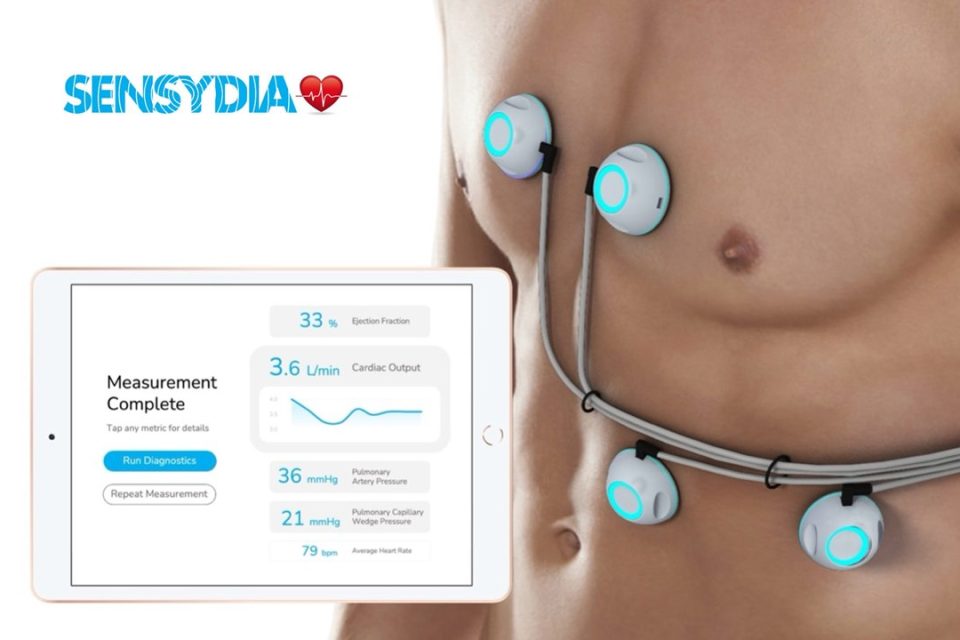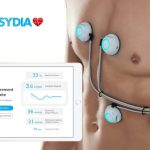Biotech startup Sensydia secures $3M in NIH funding grant to revolutionize heart disease screening

Heart disease is the leading cause of death among people of all racial and ethnic groups in the United States. According to the Centers for Disease Control and Prevention (CDC), one person dies every 36 seconds in the United States from cardiovascular disease. About 655,000 Americans die from heart disease each year—that’s 1 in every 4 deaths.
In addition, more than six million American adults are currently living with heart failure. That number is expected to grow to nearly 8 million by 2030. Despite this scary statistic, the current way to test for heart failure is through a painstaking process known as coronary angiography or cardiac catheterization, which is a diagnostic procedure used to evaluate and diagnose various heart conditions.
The procedure involves the insertion of a thin, flexible tube called a catheter into a blood vessel, typically in the groin or wrist, and guiding it toward the heart. The procedure is complex and very expensive, which is why Los Angeles-based health tech startup is on a mission to revolutionize heart disease screening with an alternative non-invasive testing approach through its AI-based cardiac assessment platform (CPS).
To further grow its platform, Sensydia announced today that it has received a $3 million NIH funding grant to help propel its non-invasive CPS platform. The fund was awarded as part of the Fast-Track Small Business grant from the National Heart, Lung, and Blood Institute (NHLBI), part of the National Institutes of Health (NIH).
The award provides Sensydia with non-dilutive funding for the development and clinical testing of the machine learning algorithms for the Cardiac Performance System (CPS), designed to enable earlier detection and therapy guidance for patients with heart failure and pulmonary hypertension.
“We are honored to be a recipient of this competitive award from the NIH/NHLBI and look forward to unlocking the capabilities of AI-based cardiac assessment to provide personalized care to patients suffering from heart disease,” said Aman Mahajan, MD, Sensydia Chief Medical Officer.
Phase I of the grant proposal is budgeted for approximately $600,000 and Phase II for $2.4M, following successful completion of Phase I milestones.
This NIH award marks a significant milestone for Sensydia, a company committed to developing AI-based solutions for the diagnosis and management of cardiopulmonary diseases. Sensydia recently raised $8M in venture funding.
Unlike cardiac catheterization, Sensydia’s CPS platform uses biosensors and artificial intelligence to scan for irregularities in a person’s heart. Commenting on the current process of heart screening, Sensydia CEO Anthony Arnold said the cardiac catheterization process is “really expensive, it takes up to tens of thousands of dollars to do it, and it’s invasive.”
Arnold added, “These are very exquisitely sensitive biosensors, microphones, in essence, and the data they collect is a tremendous amount of data. My engineers tell me that from those four sensors and 10 heartbeats, we may have 30,000 discrete, identifiable features that happen in everybody’s heartbeat.”
Currently, the United States spends more than $30 billion on diagnosing and treating heart failure. The conventional approach involves expensive and risky catheterization procedures performed within hospital settings to obtain precise assessments of cardiac performance. However, Sensydia has developed a groundbreaking solution.
Sensydia’s CPS platform offers a highly accurate and non-invasive method of assessing cardiac performance, including measurements of cardiac output, ejection fraction, and pulmonary pressures. What sets CPS apart is its ability to provide these assessments in nearly any location, and it does so in under 5 minutes.
This innovative platform harnesses the power of proprietary waveform machine-learning techniques. These methods have been extensively trained using data from gold-standard measurements obtained through in-hospital catheterization lab procedures. By leveraging this technology, Sensydia revolutionizes the field, offering a faster and safer alternative to traditional catheterization procedures for assessing cardiac performance.

